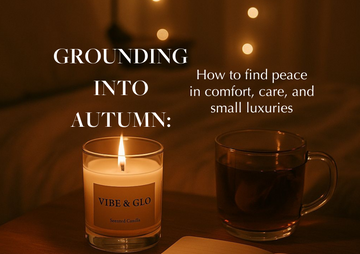At Thrive Urban Wellness, we view therapy as a powerful tool for transformation and deepened understanding of the self. However, the therapy lingo and modalities that therapists use can be confusing. This guide aims to help you understand what these modalities mean and how they can assist you in your therapy journey, empowering you to make an informed decision of the kind of support that will best suit your needs. After all, you are the expert of your own life, and it is no different in your therapy sessions!
Let’s delve into some of the approaches the Counselling Therapists at Thrive Urban Wellness integrate into their practice:
1. Acceptance and Commitment Therapy (ACT)
ACT focuses on accepting your thoughts and feelings rather than fighting against them. It encourages you to commit to actions that align with your values, cultivating psychological flexibility and resilience.
ACT is beneficial for managing stress, anxiety, and depression. By accepting your internal experiences and focusing on meaningful actions, you can reduce the impact of negative emotions.
2. Attachment-Based Therapy
Attachment-Based Therapy emphasizes the importance of early attachment experiences and their impact on current relationships and behaviours. It explores the connection between your early relationships and your present-day interactions.
This therapy can help you understand and heal from attachment wounds, leading to healthier relationships and a stronger sense of self. It’s particularly useful for individuals who struggle with intimacy and trust in relationships.
3. Cognitive Behavioral Therapy (CBT)
CBT is a structured and time-limited therapy that helps you identify and challenge negative thought patterns and behaviors. It’s based on the idea that our thoughts, feelings, and behaviors are interconnected, and by changing negative thoughts, we can alter our emotional states and behaviors.
CBT is typically used for addressing anxiety, depression and phobias. It empowers you to take control of your thought processes, develop healthier behaviors, and improve your emotional well-being.
4. Dialectical Behavior Therapy (DBT)
DBT combines cognitive-behavioral techniques with concepts of mindfulness and acceptance. It focuses on providing skills for emotional regulation, distress tolerance, interpersonal effectiveness and mindfulness.
DBT is particularly effective for individuals with borderline personality disorder, self-harm behaviors, and emotional dysregulation. It helps you develop practical skills to manage intense emotions and improve relationships.
5. Emotionally Focused Therapy (EFT) / (EFIT)
EFT (couples therapy) and EFIT (individual) is a structured approach that focuses on improving attachment and bonding in adult relationships. It helps individuals understand and change their emotional responses.
EFT is effective in reducing distress and improving relationship satisfaction. It also helps couples create a secure bond and a deeper emotional connection.
6. Energy Psychology
Energy Psychology incorporates techniques like EFT Tapping, which combines tapping on specific acupressure points with verbal affirmations to alleviate emotional distress.
Energy Psychology can complement traditional therapies, offering additional tools for stress reduction, emotional release and overall holistic healing.
7. Family Systems Therapy
Family Systems Therapy views individual issues within the context of the family unit. It focuses on understanding and improving family dynamics to promote healthier relationships.
By addressing family dynamics, this therapy approach can help improve communication and resolve conflicts within the family. It’s beneficial for individuals dealing with complex family relationships.
8. Gottman Method
The Gottman Method is a research-based approach to couples therapy that focuses on improving communication, conflict resolution and relationship satisfaction.
This method provides couples with practical tools to enhance their relationship, build emotional intimacy, and create a strong partnership based on mutual respect and understanding.
9. Humanistic Therapy
Humanistic Therapy focuses on the individual’s capacity for self-growth and self-actualization. It emphasizes the importance of being true to oneself and living an authentic life.
This approach helps you explore your potential, develop self-awareness, and create a more meaningful life. It’s beneficial for personal growth and self-discovery.
10. Internal Family Systems (IFS)
IFS is a therapeutic approach that views the mind as composed of different parts, each with its own perspective and qualities. It aims to harmonize these parts by healing wounded parts and enhancing the self-leadership.
IFS helps you understand and integrate various aspects of your personality, leading to improved emotional balance and self-awareness. It’s particularly effective for trauma, anxiety, and depression.
11. Mindfulness-Based Cognitive Therapy (MBCT)
MBCT combines cognitive therapy techniques with mindfulness strategies to help you manage your thoughts and emotions.
MBCT is effective for preventing relapse in depression and managing anxiety. It helps you develop a mindful approach to your thoughts and feelings, reducing the impact of negative emotions.
12. Narrative Therapy
Narrative Therapy centers around the stories we tell about our lives. It helps you examine and reshape these narratives to gain a new perspective on your experiences.
This approach is beneficial for individuals who feel stuck or defined by negative past experiences. By rewriting your personal narratives, you can overcome challenges and create a more empowering story of your life.
13. Person-Centered Therapy
Person-Centered Therapy focuses on creating a supportive environment where you can explore and understand your feelings. It emphasizes the importance of empathy, unconditional positive regard and authenticity.
This approach is particularly effective for personal growth and improving self-esteem. It helps you develop self-awareness and self-acceptance.
14. Relational Therapy
Relational Therapy focuses on the therapeutic relationship itself as a vehicle for healing. It emphasizes the importance of a strong, supportive therapist-client relationship.
Through a trusting therapeutic relationship, you can explore and resolve interpersonal issues, leading to improved relationships outside of therapy. It’s especially effective for individuals with relationship difficulties or interpersonal conflicts.
15. Somatic Therapy
Somatic Therapy involves connecting with your body's sensations and experiences to process and heal trauma. It integrates body awareness and movement into the therapeutic process.
By focusing on the body’s sensations, this therapy helps release stored trauma and promotes overall well-being. It is beneficial for individuals dealing with trauma and those seeking a holistic approach to healing.
16. Trauma-Focused Therapy
Trauma-Focused Therapy is specifically designed to help individuals who have experienced trauma. It incorporates various techniques to process and integrate traumatic experiences.
This approach is effective for PTSD, complex trauma, and childhood abuse. It helps you understand and heal from the impact of trauma, leading to improved emotional regulation and overall mental health.
—-----
At Thrive Urban Wellness, the Counselling practitioners tend to use an integrative approach, merging these therapies to create unique sessions tailored to your needs. By understanding these different therapeutic modalities, you can reflect more effectively when developing your goals, ensuring a therapy journey that truly aligns with your unique path to healing and growth!
At Thrive Urban Wellness in Newmarket, Ontario, Victoria Applebaum, Registered Social Worker & Psychotherapist, is here to provide counselling that can help you live a more relaxed, healthy, and fulfilling life.
Click here to schedule a free 15min Discovery Call to start your healing journey with Victoria today.







